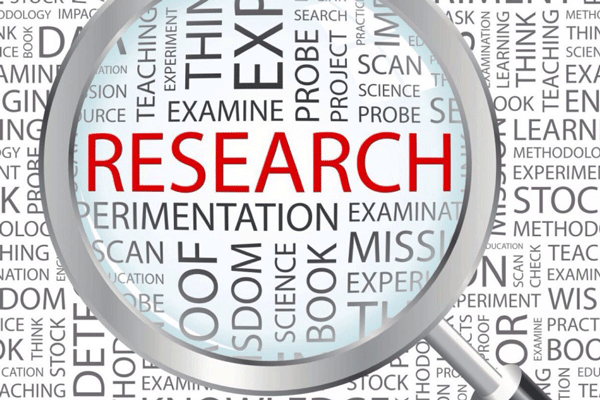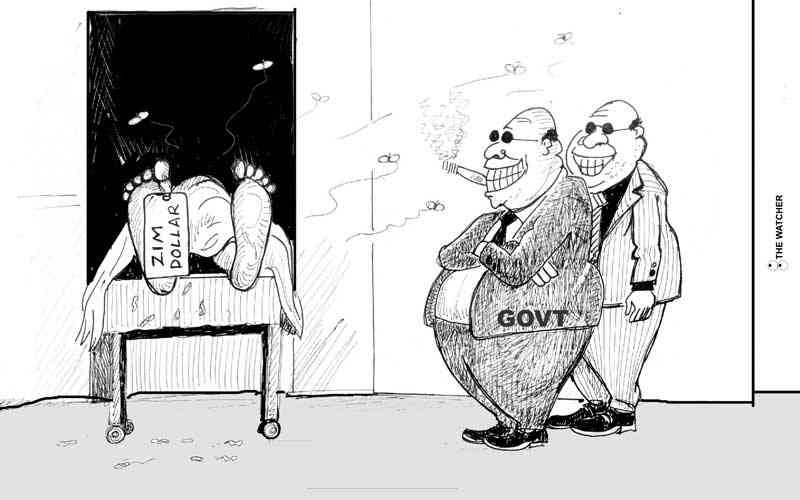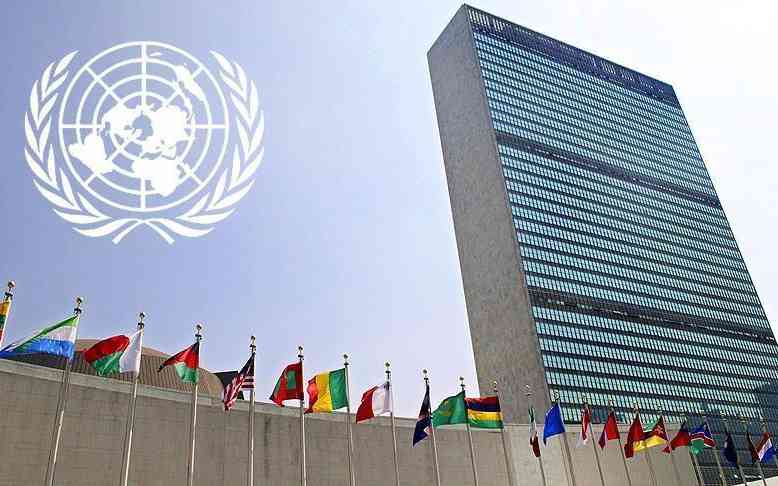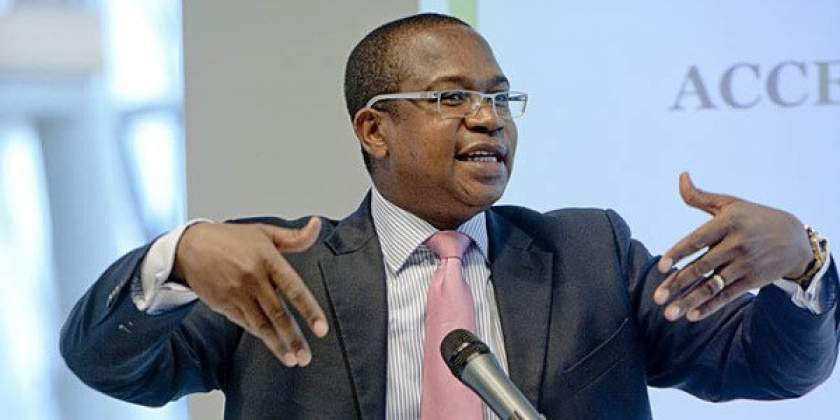
Alexander Maune / Stephen Brien
AS we enter the new year 2022, the world is faced with numerous challenges that call for serious research and collaborations by the academia, public, and private sectors. History has shown that countries that research tend to perform better than those that do not invest in research.
Countries need to forge strong social contracts, build open economies, and invest in human capital as strategies towards development.
Economic development is characterised by a process of extending knowledge and using such knowledge to increase economic growth and welfare. Research and development (R&D) has become a critical component of economic development and countries that invest in R&D have done well economically.
Israel, for example, a small country the size of New Jersey, with a population of around 15 million and surrounded by “antagonistic neighbours” and without meaningful natural resources, has dominated the world through R&D. R&D not only creates new knowledge, but also increases the ability to learn and use existing know-how.
The contribution of R&D to innovation and productivity growth has been widely recognized globally. For example, R&D intensive sectors lead the growth of Israeli exports. The success of Israeli R&D, for example, can be measured by the number of IPOs that have been registered on the Nasdaq, a number that is larger than any other country outside the US, except Canada.
Since the 1960s and until today, more than 380 R&D centres of international companies were established in Israel, 73 of which have been closed, and currently there are more 307 active R&D centres owned by more than 303 international companies. Israel has become a global leader in R&D, and it is this strength that has attracted many of the world’s major international high-technology firms for decades.
The Israeli brains are now the global heart for innovative idea generation, scientific breakthroughs as well as an essential element for ground-breaking innovative solutions to the global challenges. Jason Gewitz’s book, Israel’s Edge: The Story of the IDF’s Most Elite Unit — Talpiot, published in 2016, for example, gives never-before revealed information on Israel’s Defence Forces’ most innovative thinkers, the Talpiot.
- Chamisa under fire over US$120K donation
- Mavhunga puts DeMbare into Chibuku quarterfinals
- Pension funds bet on Cabora Bassa oilfields
- Councils defy govt fire tender directive
Keep Reading
The book lists some of the accomplishments of the Talpiot’s outstanding graduates who have created cutting-edge start-ups like Check Point, Compugen, Anobit (bought by Apple) and XIV (bought by IBM) after leaving the army, which is the envy of every country in the world. Israel has managed to accomplish all this due to its investment in R&D and strong collaborations between the academia, public institutions, and private sector. Israel invests on average 4,5% of GDP towards R&D.
A number of countries are using their natural resources to develop their economies though others are in a deplorable state due to a number of factors. Corruption has been cited as the number one factor for such failure. Colonial legacy is another biggest challenge currently facing Africa. There is need for serious mind shift in Africa.
Countries such as Zimbabwe, though endowed with mineral resources (chrome, coal, copper, gold, nickel, palladium, phosphate, platinum, diamonds, rhodium, and ruthenium), remain poor with a GDP per capita of US$1 128,21 (2020), life expectancy at birth, total of 61,74 years (2020). These figures are way below the average standard of successful development (US$3 500 and 70 years).
The funny part is that all these mineral resources are exported in raw form and fetching very low prices on the global commodities market. There is no value-addition to all the minerals.
According to the 2022 budget statement, Zimbabwe had 61,2% of its population in extreme poverty as of 2020 and a public debt of 61% of GDP. The country is faced with a number of fiscal and monetary challenges. The country needs serious investment in R&D to come out of these challenges. The country needs to define its own path through R&D. The country’s proposed investment of 1% of GDP towards R&D fall short of the real investment requirements when compared with other countries. Zimbabwe needs to seriously consider R&D over and above investor protection (respect of property rights), and good governance in order to achieve its Vision 2030. The country needs to appreciate the importance of R&D in solving challenges.
Africa, for example, was hard hit by HIV and Aids, but no meaningful research or investment was done by the whole continent of more than 1,341 billion people. Up to now the whole continent does not know the origins and the nature of the disease. The whole continent relies on medication from its former colonial masters. Does the continent lack the financial capacity? Does it lack the required expertise? A lot does not add up. Some ask why Africa does not partner more with China and Russia, for example, to do serious research.
Now we are in the middle of COVID-19 and Africa seems to be just a recipient of the vaccines which she does not know their make-up. This is the right time the continent develops and equips its health care system. In addition, Ebola caused havoc and is currently a threat to central and west Africa and nothing much was invested in research and towards vaccine development by African countries. Africa is still sleeping from the realities of the world.
It is time Africa wakes up from her sleep and from the thinking that Europe or America will solve its problems. As was said by Osward M Siabwanda, a Grade 5 pupil in his book, Seize your Moment, Africa must think, because right now Africa is not thinking.
Nothing is impossible for a made-up mind. Our biggest enemy is fear. We are our biggest enemy. Genesis 1:26-31 tells us the power that God gave to man. How did Henry Ford manage to develop the V8 engine against all odds? When Ford decided to execute his final great idea, a V8 engine, he assembled a small group of engineers at Greenfield Village, his historical theme park. There under Ford’s direct supervision and at a safe distance from the experts who knew it could not be done, they developed the first Ford V8 in 1932. Why can’t Africa follow the same model to solve her current problems.
Greed, corruption, and the thinking that we are here for good has killed Africa. The Talmud (Shabbos, 31a) states that: “The first question an individual is asked in the afterlife at the final judgment is: ‘Were you honest in your business dealings?’”
Professor Rudolph R Windsor in his 1969 book titled From Babylon to Timbuktu: A History of the Ancient Black Races Including the Black Hebrews, argues that until comparatively recent times, knowledge that black Africa was the seat of highly evolved civilisations and cultures during a time when Europe stagnated was limited to a small group of scholars.
That great empires such as Ghana, and, later Mali, flourished for centuries while Europe slept through its Dark Ages almost has been ignored by historians. Because of the scarce literature on the contributions of blacks to world civilisation, most people today hold the erroneous opinion that the black races have little real history. It was not known, for instance, that the ancient Hebrews, Mesopotamians, Phoenicians, and Egyptians were blacks.
Dr Walter Rodney wrote an intriguing book titled How Europe Underdeveloped Africa. In the book, Rodney argues that the phenomenon of neo-colonialism cries out for extensive investigation in order to formulate the strategy and tactics of African emancipation and development.
But can’t we rely on Western aid for economic development? In its February 2021 report How Nations Succeed: Analyses of National Transformation, the Legatum Institute argues that even the most committed advocates of aid would be forced to concede that the more than US$1 trillion of development aid delivered to African nations between 1960 and 2010 has failed to create the level of prosperity envisaged by donors.
The 2021 Legatum report clearly states that nations that have developed, developed themselves. According to Paul Collier, a British development economist who serves as the professor of economics and public policy at the Blavatnik School of Government and director of the International Growth Centre, the West cannot save the poor (Africans).That is the great delusion of a lot of Western thinking, we are the saviours who will save them from their menace.
The time is now for Africa to map its developmental path and not just follow the wind. Africa has some of the biggest brains that are doing wonders in the world. So it is not that the continent lacks the intellectual capacity. It is high time universities and research institutions are properly financed.
Furthermore, there is need to promote military-university-industry cooperation. Universities are knowledge creators and most innovations have come out of these institutions. Zimbabwe has taken a good initiative in establishing innovation hubs at each university.
However, what remains is for government to avail research funds as well as fostering research partnerships with international research financiers. These hubs must create networks between universities, research, development institutions, close cooperation with the military and government support.
Universities need to change their modus operandi. Universities need to be flexible in the way they operate. For example, they must allow their members to work in the private sector and come back if they need to.
This allows for cross pollination of ideas. Public institutions must be driven by meritocracy. Meritocracy is a unique and powerful model of managing public institutions.
As Africa, we do not need to wait for other nations to tell us what to do or what is good or bad for us. We need to formulate the path we want, that is, the Africa we want. We need to up our game in global competitiveness.
The future now belongs to those who innovate with those that do not innovate, falling behind. African countries need to develop their own science, engineering, technology, and innovation ecosystems that involve the activities of the government, research universities and institutions, medical centres, industry, and not-for-profit research organisations.
Governments need to create environments that ensure true prosperity for their people. But what is true prosperity? The Legatum Institute defines true prosperity “as when all people have the opportunity to thrive. It is underpinned by an inclusive society, with a strong social contract that protects the fundamental liberties and security of every individual. It is driven by an open economy that harnesses ideas and talent to create sustainable pathways out of poverty. It is built by empowered people, who create a society that promotes wellbeing. True prosperity means everyone has the opportunity to fulfil their unique potential and playing their part in strengthening their communities and nations. Because ultimately, prosperity is not about solely what we have; it is also about who we become.”
In conclusion, there is need to strengthen good governance in Africa. The need for investor protection and good governance in Africa cannot be overemphasised. Too many African entrepreneurs go elsewhere to develop and commercialise their ideas because of poor governance and rampant corruption at home.
Dr Walter Rodney wrote an intriguing book titled How Europe Underdeveloped Africa. In the book, Rodney argues that the phenomenon of neo-colonialism cries out for extensive investigation in order to formulate the strategy and tactics of African emancipation and development.
But can’t we rely on Western aid for economic development? In its February 2021 report How Nations Succeed: Analyses of National Transformation, the Legatum Institute argues that even the most committed advocates of aid would be forced to concede that the more than US$1 trillion of development aid delivered to African nations between 1960 and 2010 has failed to create the level of prosperity envisaged by donors.
The 2021 Legatum report clearly states that nations that have developed, developed themselves. According to Paul Collier, a British development economist who serves as the professor of economics and public policy at the Blavatnik School of Government and director of the International Growth Centre, the West cannot save the poor (Africans).That is the great delusion of a lot of Western thinking.
The time is now for Africa to map its developmental path and not just follow the wind. Africa has some of the biggest brains that are doing wonders in the world. So it is not that the continent lacks the intellectual capacity. It is high time universities and research institutions are properly financed.
Furthermore, there is need to promote military-university-industry cooperation. Universities are knowledge creators and most innovations have come out of these institutions. Zimbabwe has taken a good initiative in establishing innovation hubs at each university.
However, what remains is for government to avail research funds as well as fostering research partnerships with international research financiers. These hubs must create networks between universities, research, development institutions, close cooperation with the military and government support.
Universities need to change their modus operandi. Universities need to be flexible in the way they operate. For example, they must allow their members to work in the private sector and come back if they need to.
This allows for cross-pollination of ideas. Public institutions must be driven by meritocracy. Meritocracy is a unique and powerful model of managing public institutions.
As Africa, we do not need to wait for other nations to tell us what to do or what is good or bad for us. We need to formulate the path we want, that is, the Africa we want. We need to up our game in global competitiveness.
The future now belongs to those who innovate, with those that do not innovate falling behind. African countries need to develop their own science, engineering, technology, and innovation ecosystems that involve the activities of the government, research universities and institutions, medical centres, industry, and not-for-profit research organisations.
Governments need to create environments that ensure true prosperity for their people. But what is true prosperity? The Legatum Institute defines true prosperity “as when all people have the opportunity to thrive. It is underpinned by an inclusive society, with a strong social contract that protects the fundamental liberties and security of every individual. It is driven by an open economy that harnesses ideas and talent to create sustainable pathways out of poverty. It is built by empowered people, who create a society that promotes wellbeing. True prosperity means everyone has the opportunity to fulfil their unique potential and playing their part in strengthening their communities and nations. Because ultimately, prosperity is not about solely what we have; it is also about who we become.”
In conclusion, there is need to strengthen good governance in Africa. The need for investor protection and good governance in Africa cannot be overemphasised. Too many African entrepreneurs go elsewhere to develop and commercialise their ideas because of poor governance and rampant corruption at home.
- Alexander Maune is a Talmudic scholar, researcher and consultant as well as a member of IoDZ. He can be contacted on [email protected].
- Dr Stephen Brien is the director of policy at Legatum Institute, London, United Kingdom. He can be contacted on [email protected].











